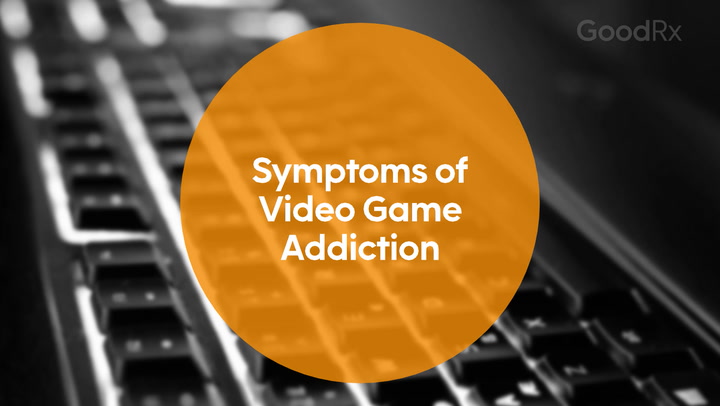
4 Proven Ways to Help Someone With Food Addiction
Key takeaways:
Food addiction is not an official mental health condition. But professionals sometimes use the term to describe people who have difficulty managing their food intake.
Addressing an addiction with a loved one can be a challenging process. Helping someone with a food addiction takes patience, understanding, and a level attitude.
A great way to support a loved one is by encouraging them to get professional addiction treatment that targets their food addiction directly.

Food addiction has emerged as a serious concern. Though it is not an official diagnosis, food addiction refers to when a person’s thoughts, feelings, and behaviors revolve around food and eating.
A person who is addicted to food may have difficulty controlling how much or what they eat. They may also eat in ways that are harmful to their health. This includes eating foods that are fatty, sugary, or ultra processed.
If you know someone who struggles with food addiction, learning about the symptoms and effects can help you better understand how to help.
Prescription Savings Are Just the Beginning
See what other benefits you qualify for—from cashback cards to cheaper insurance.

How do you address food addiction with a loved one?
Before you can address a possible food addiction with a loved one, you should create an action plan to guide you. Without a plan, you could waste time and energy as you miss opportunities to support your loved one.
Some of the most helpful ways to address food addictions and other mental health issues are to:
Learn about mental health conditions and warning signs.
Develop your communication skills.
Plan for your loved one’s reactions and wishes.
Get yourself help.
Preparing in advance and developing a plan can help put you on the right path.
1. Learn about warning signs and addictions
At the beginning of the process, educating yourself is key. Learning the signs and symptoms of mental health concerns is a great first step. Work to notice differences in your loved one’s:
Eating
Sleeping
Energy levels
Social interactions
Weight and appetite
Work or school performance
Read more like this
Explore these related articles, suggested for readers like you.
If you notice a major shift in their eating, appetite, and weight, you could suspect an issue with food, like an eating disorder or food addiction. Next, you can look for the signs of a food addiction like:
Having trouble stopping after they start eating
Eating when they aren’t hungry
Focusing on getting a particular type of food
Complaining about overeating or feeling overly full
Using food to cope with certain emotions
Feeling sad, nervous, guilty, or upset after eating
Having problems with relationships or responsibilities because of food and eating
Avoiding certain people or places because of food-related issues
Having even one or two of these signs could point to a food addiction.
Eating disorders, especially binge eating disorder, may overlap with food addiction. A person with binge eating disorder feels like they can’t control how much food they eat. They eat large amounts of food in a short time period. And it makes them feel out of control.
2. Develop your communication skills
Effective communication between you and the other person is important for a solid relationship, and it can make helping them more possible. Good communication focuses on you expressing yourself directly and clearly. It also focuses on you listening and respecting your loved one.
When it is time to speak with your friend or loved one:
Set a time and place to talk. Ambushing someone with a conversation may trigger defensiveness and anger. Don’t surprise them with a conversation. Instead, plan for a specific time and place. Let them know you want to talk about some concerns you have.
Establish a goal. Think about what you want to achieve through this conversation. Be sure to stay realistic. If you think one conversation can reverse their condition, you may be let down. Your loved one also may not agree with your perspective.
Limit distractions. If you have kids, put them to bed. If you have roommates or friends around, ask them for some space. Also, turn off the TV, and put down your phones. Focus will help you have a meaningful conversation.
Stay calm and positive. Speak clearly with a calm and encouraging tone. Stay optimistic. Let them know you support them, and talk about ways to address the problem as a team. Respect that they have the final say about their health.
Reduce emotions. Challenging conversations about big topics have a way of bringing out intense emotions. Check in with yourself to keep your emotions under control. Some level of emotional expression is good. But too much can distract from your plan. If you notice the emotions rising, suggest taking a 5-minute break.
There is no way to guarantee a successful conversation. But these tips can improve your odds.
3. Plan for their reactions and choices
Try to predict the ways your loved one will respond to your communication. Will they deny the situation, change the subject, or blame you for their problems? Will they have a different opinion about whether they need or want help?
By anticipating their reactions, you can plan and prepare. For example, maybe your loved one agrees that they need help but don’t know how to get started. You can help prepare a list of available providers in your area.
4. Know the resources, and get support for yourself
Having a loved one dealing with an addiction can be confusing and challenging. Your mental and physical health could be affected by addiction or any other mental health condition.
You cannot support your loved one if your stress levels are unmanageable. Therapy or support groups can help you cope with the stress of supporting a loved one dealing with a food addiction.
Some support groups include:
Taking care of yourself will put you in a better position to support your loved one.
Other ways to support someone dealing with food addiction
Being supportive of someone dealing with food addiction means being part of a team connected by the same goal. You can help support your loved one’s recovery by:
Providing childcare or transportation to appointments
Offering to be a part of treatment if they need extra support
Asking questions about how they are and what they need
Showing love and concern for their situation
Working to solve problems together
Helping them practice strategies to manage triggers and cravings
Different people will need different types of support. Be sure to ask your loved one about what would help them start and maintain recovery.
Don’ts for someone dealing with food addiction
Avoiding certain actions is an important part of helping a loved one with food addiction. To support your loved one, don’t:
Try to treat their condition. You are not a psychiatrist or a therapist.
Make excuses for, ignore, or cover up their condition. This pattern may encourage the addiction.
Blame or accuse. Remember that addictions are difficult for people to control. Your loved one may want to stop but not know how to start.
Expect them to be “cured” rapidly. There may be setbacks. Recovery from addiction is an ongoing process that requires lots of attention and energy.
Remind yourself and your loved one that this process is new to both of you. You may make mistakes along the way, but you’re always trying your best.
Treatments available for food addiction
Currently, mental health professionals do not recognize food addiction as an official condition. There is a growing interest in the study of food addiction, though, along with treatments that work best.
With food addiction, the person may crave non-nutritious; ultra-processed; and other fatty, salty, or sugary foods. Because of this, a food addiction can threaten their physical and mental health. Therapy can help people more effectively manage these cravings.
Cognitive behavioral therapy (CBT) helps people identify what triggers their food cravings while offering healthier coping skills. Treatment may focus on avoiding certain foods completely or trying to find moderation.
CBT is a great option for food addiction because it’s effective for other addictions and eating disorders.
Support groups, such as Overeaters Anonymous, can also be a helpful part of treatment for food addiction. These groups allow people to connect with others dealing with similar problems and learn ways to manage their addictions.
No medications are specifically used for food addiction, but using medication to treat other mental health symptoms can help.
The bottom line
Helping a loved one with any addiction can be a challenging and uncertain process. By following the tips above to stay perceptive, patient, and positive, you can offer the support they need.
Why trust our experts?


References
Adams, R. C., et al. (2019). Food addiction: Implications for the diagnosis and treatment of overeating. Nutrients.
American Psychological Association. (n.d.). Helping a loved one cope with mental illness.
Brunault, P., et al. (2020). The modified Yale Food Addiction Scale 2.0: Validation among non-clinical and clinical french-speaking samples and comparison with the full Yale Food Addiction Scale 2.0. Frontiers in Psychiatry.
Centers for Disease Control and Prevention. (2022). Adult obesity facts.
DeAngelis, T. (n.d.). Fighting food addiction. American Psychological Association.
Families Anonymous. (n.d.). Families Anonymous.
Food Addicts in Recovery Anonymous. (n.d.). For family and friends.
National Alliance on Mental Illness. (n.d.). NAMI Family-to-Family.
National Institute of Diabetes and Digestive and Kidney Diseases. (2021). Definition and facts for binge eating disorder.
National Institute on Drug Abuse. (2019). Communication.
Overeaters Anonymous. (n.d.). Overeaters Anonymous.
If you or someone you know struggles with addiction, help is available. Call SAMHSA’s National Helpline at 1-800-662-4357 to learn about resources in your area.





















